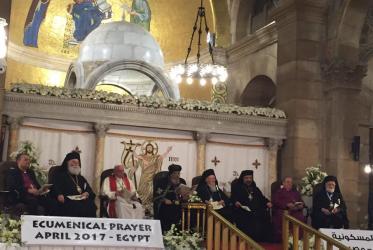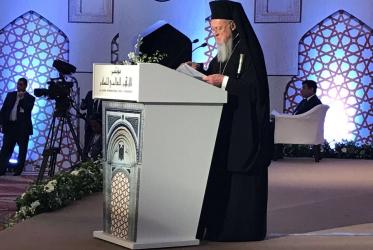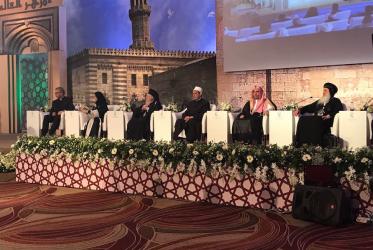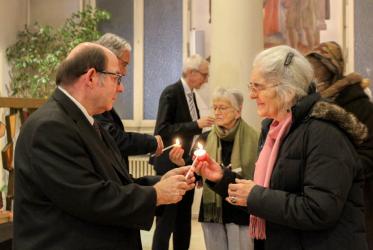Displaying 81 - 100 of 145
‘Love is stronger than hate’
02 May 2017
Historic ecumenical prayer in Egypt for peace and unity
30 April 2017
WCC gravely concerned over Israel’s travel ban
09 March 2017
“What can we contribute as a worldwide fellowship?”
06 March 2017
WCC general secretary speaks on religion and discrimination
14 February 2017
Churches in Norway and Pakistan break new ecumenical ground
26 January 2017
Christians in Geneva pray for reconciliation
20 January 2017
Plans for 2017 decided by WCC Executive Committee
01 December 2016
Religious leaders of many faiths talk peace in Assisi
21 September 2016












